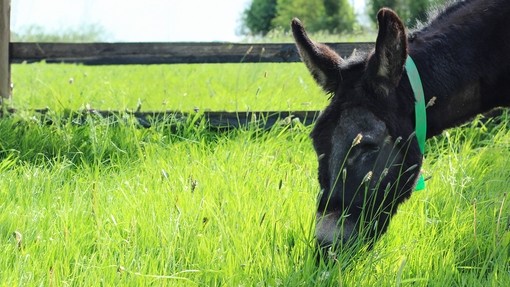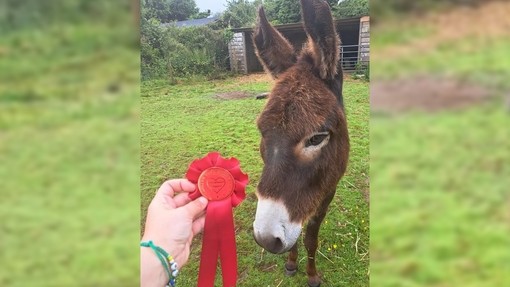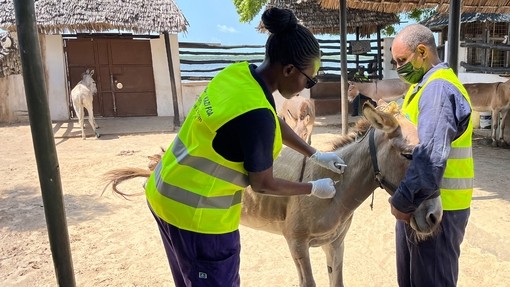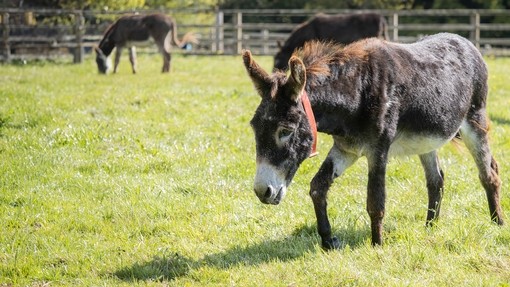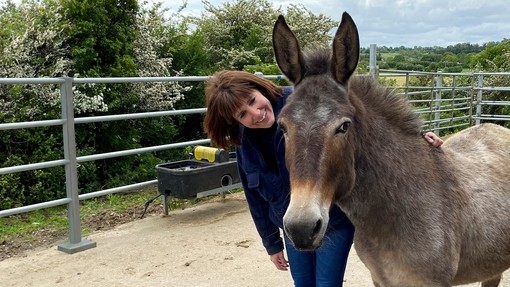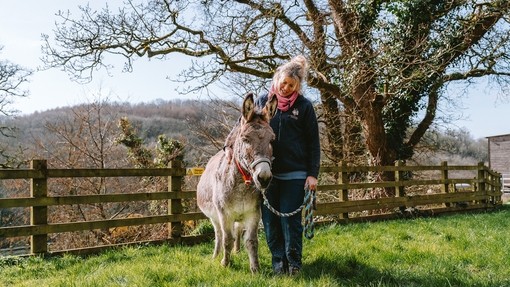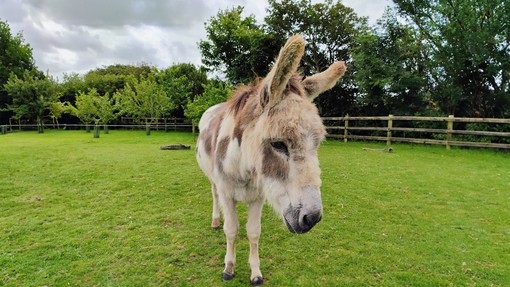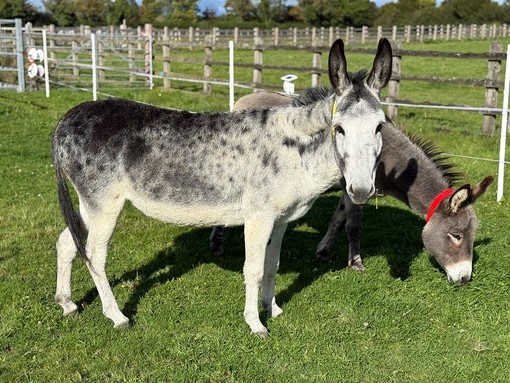
Luna's story
Eight-year-old Luna, who was relinquished into our care earlier this year alongside best friend Marble, worried her grooms at our New Arrivals Unit after she was spotted lying down and refusing to eat.
Once the duty vet examined Luna, they confirmed she was suffering from abdominal pain – also known as colic.
Understanding colic
What is colic?
Colic is a symptom of abdominal pain, commonly in the gastrointestinal tract (such as the stomach or intestine). It can also be due to pain in other organs, such as the kidneys, ovaries or bladder.
There are many different kinds of colic, including:
- Impaction or blockage of the intestine with partly digested food, foreign bodies (such as plastic bags), or parasites (worms)
- Muscle spasms in the wall of the intestine (spasmodic colic)
- A build-up of gas (gassy colic)
- Torsion (twisting) of part of the intestine (twisted gut)
- Painful conditions, such as stomach ulcers, tumours or pancreatitis.
Luna's recovery
Luna began a course of treatment comprising pain relief and fluids, but despite initially showing signs of improvement, her condition gradually started declining again the following day.
She was promptly transported to Brookfield Farm, home to our specialist donkey hospital.
Further tests revealed Luna had a displacement colic – meaning her large intestine had shifted from its normal position within her abdomen and was causing her a lot of discomfort.
Veterinary Surgeon Jamie Forrest says: “Luna was hospitalised and treated with oral fluids via a nasogastric tube several times a day.
“She was very carefully monitored in order to correct the displacement of her intestines.

“After a few days of intensive treatment, Luna was much brighter and happily eating.
“Her large intestine had moved back into its normal position, and she was able to go home on a careful diet plan to gradually reintroduce her regular feed, which had been limited due to her colic.”
Luna and Marble have since moved to our Sidmouth sanctuary in Devon and joined a new herd.
Since their relocation, their inquisitive natures have come to the fore and they continue to grow in confidence.
Help more donkeys like Luna receive the veterinary treatment they need
Make a donationShare this page
Tags
- News





